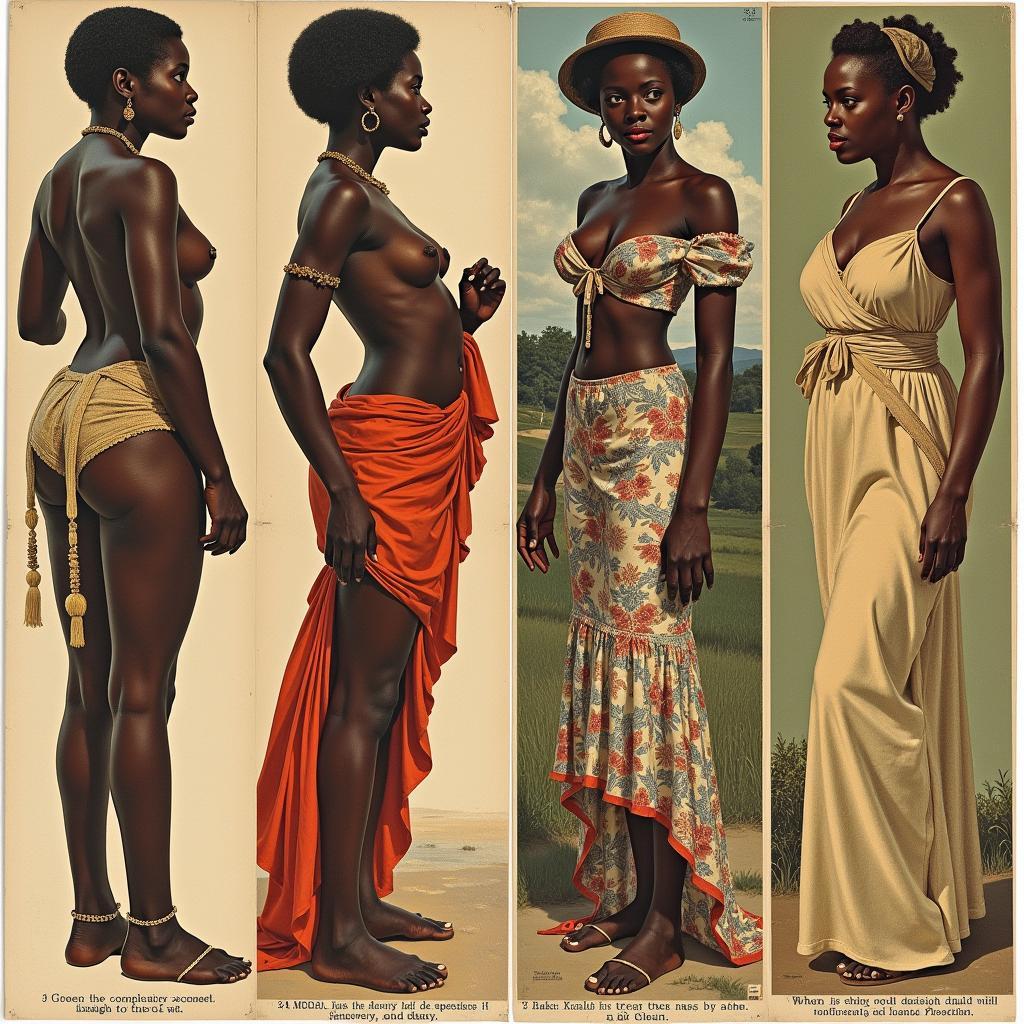Exploring African Landscape Names: A Journey Through Diverse Terrain
African Landscape Names offer a glimpse into the continent’s rich history, diverse cultures, and breathtaking natural beauty. From towering mountains and vast savannas to lush rainforests and arid deserts, the names given to these landscapes often reflect their unique characteristics, cultural significance, or historical events. This exploration delves into the fascinating world of African landscape names, unveiling their hidden meanings and celebrating the continent’s diverse terrain.
Unveiling the Stories Behind African Landscape Names
African landscape names are more than just labels; they are stories etched into the land. Many names originate from indigenous languages, preserving ancient wisdom and beliefs. For example, the Drakensberg Mountains in South Africa, meaning “Dragon Mountains” in Afrikaans, were named by early Dutch settlers who believed they resembled the mythical creature’s back. Other names reflect the landscape’s physical attributes, like the Sahara Desert, derived from the Arabic word for “desert.” Learning about these names provides a deeper understanding of the continent’s geographical and cultural tapestry. Do you know the origin of your favorite African landscape name?
Cultural Significance of African Landscape Names
Often, African landscape names hold deep cultural significance for local communities. They can represent sacred sites, historical landmarks, or sources of sustenance. For instance, Mount Kilimanjaro, Africa’s highest peak, is revered by the Chagga people of Tanzania, who believe it is the abode of their gods. These names are integral to cultural identity and serve as a connection to ancestral heritage. It’s important to understand and respect the cultural significance of these names.
Navigating the Diverse Terrain Through African Landscape Names
Understanding African landscape names can enhance your travel experiences, allowing you to connect with the land on a deeper level. From the iconic Victoria Falls, named after Queen Victoria, to the Serengeti Plains, meaning “endless plains” in Maasai, these names paint a vivid picture of the landscape’s characteristics. If you’re interested in learning more about African footballers, check out this resource: african footballer award winners.
What are some common themes in African landscape names?
Many African landscape names reflect themes of nature, spirituality, and history. Names often describe the landscape’s physical features, such as mountains, rivers, and deserts. Others allude to mythical creatures, ancestral spirits, or historical events. These themes reveal the intimate connection between people and their environment.
How can I learn more about the meaning of specific African landscape names?
Resources like geographical dictionaries, travel guides, and local communities can provide valuable insights into the meaning and significance of specific African landscape names. Exploring these resources can deepen your appreciation for the rich cultural heritage embedded within these names. For insights into African currencies, see: african currency name.
The Impact of Language on African Landscape Names
The diversity of languages spoken across Africa is reflected in the variety of landscape names. Many names retain their original indigenous forms, while others have been adapted or translated into European languages. This linguistic diversity adds another layer of complexity and richness to the study of African landscape names. If you’re looking for African-inspired interior design, check out: african american interior designers.
The Namib Desert in Namibia, one of the oldest deserts in the world, derived its name from the Nama language, meaning “vast place”. Learning about these names provides a unique window into the continent’s linguistic diversity. For those interested in African music, consider this: african beauty song download. Furthermore, exploring resources like african eagle resources can provide additional context on the economic impact of the continent’s landscapes.
Dr. Ayodele Ogunleye, a renowned linguist specializing in African languages, states, “African landscape names are a testament to the continent’s linguistic diversity and rich oral traditions. They hold valuable clues to understanding the history, culture, and beliefs of the people who have inhabited these lands for centuries.”
Professor Fatima Mbaye, a prominent historian specializing in African history, adds, “These names are not merely geographical markers; they are living narratives that connect us to the past and offer insights into the complex relationship between humans and their environment.”
In conclusion, African landscape names are more than just labels on a map; they are portals to the continent’s rich history, diverse cultures, and breathtaking natural beauty. By exploring the stories behind these names, we gain a deeper understanding and appreciation for the diverse landscapes that shape the African continent. From the Sahara Desert to Mount Kilimanjaro, each name tells a unique story, inviting us to embark on a journey of discovery.
Frequently Asked Questions
- What is the significance of African landscape names? African landscape names often reflect the history, culture, and natural features of a region.
- How do indigenous languages influence African landscape names? Many African landscape names originate from indigenous languages, preserving their cultural heritage.
- What are some examples of iconic African landscape names? Mount Kilimanjaro, Victoria Falls, and the Sahara Desert are some iconic examples.
- Where can I find more information about African landscape names? Geographical dictionaries, travel guides, and online resources can provide more information.
- Why is it important to understand the meaning of African landscape names? Understanding the meaning of these names enhances our appreciation for the continent’s rich cultural and geographical diversity.
When you need help, please contact us via Phone: +255768904061, Email: kaka.mag@gmail.com or visit our office at Mbarali DC Mawindi, Kangaga, Tanzania. We have a 24/7 customer support team ready to assist you.
